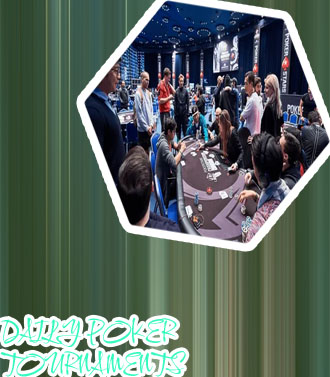Poker tournamentsAre you looking to improve your skills in poker tournaments? Whether you're a beginner or a seasoned player, these four articles will provide valuable insights and strategies to help you succeed in the competitive world of poker tournaments. From tips on bluffing to mastering your poker face, these articles cover a range of topics to help you up your game and increase your chances of winning big. Mastering the Art of Bluffing in Poker Tournaments
Bluffing is an essential skill in poker tournaments, allowing players to deceive their opponents and secure crucial wins. Mastering the art of bluffing requires a combination of timing, psychology, and strategy. In this guide, we will discuss the key principles of bluffing in poker tournaments to help you elevate your game to the next level. One of the most important aspects of bluffing is knowing when to bluff. Timing is everything in poker, and a well-timed bluff can turn the tide of a tournament in your favor. It's crucial to pay attention to your opponents' playing styles and tendencies to determine the best opportunities to bluff effectively. Another key factor in successful bluffing is understanding the psychology of your opponents. By observing their behavior and reactions, you can gain valuable insights into their hand strength and likelihood of folding. This information allows you to tailor your bluffing strategy to exploit their weaknesses and maximize your chances of success. Finally, it's essential to have a solid overall strategy when bluffing in poker tournaments. Bluffing should not be done randomly or impulsively but as part of a well-thought-out plan. By incorporating bluffing into your overall game plan, you can keep your opponents guessing and maintain a competitive edge at the table. Strategies for Playing Aggressively in Poker TournamentsIn the competitive world of poker tournaments, playing aggressively can be a key strategy for success. By taking control of the game and putting pressure on your opponents, you can increase your chances of winning big. There are several ways to play aggressively in poker tournaments, including raising pre-flop, bluffing, and making strong bets on the flop, turn, and river. One famous poker player known for his aggressive playing style is Phil Ivey. Ivey is considered one of the best poker players in the world and has won numerous tournaments using his aggressive tactics. He is known for his ability to read his opponents and make bold moves at the right time. Another key aspect of playing aggressively in poker tournaments is knowing when to pick your spots. It's important to be selective with your hands and not to overextend yourself. By choosing the right moments to be aggressive, you can maximize your chances of success. Overall, playing aggressively in poker tournaments can be a high-risk, high-reward strategy. It requires skill, timing, and a good understanding of the game. By studying the strategies of successful players like Phil Ivey and practicing your own aggressive tactics, you can increase your chances of coming out on top in the competitive world of poker tournaments. The Importance of Position in Poker TournamentsIn the world of poker tournaments, one key factor that can greatly impact a player's success is their position at the table. The position refers to where a player is seated in relation to the dealer button, and it can have a significant influence on the outcome of a hand. Being in a good position, such as being on the button or in late position, gives players a strategic advantage as they have more information about their opponents' actions before they need to make a decision. This allows them to make more informed choices and potentially outplay their opponents. On the other hand, being in a bad position, such as being in early position, can put players at a disadvantage as they have less information to work with and are more vulnerable to aggressive plays from their opponents. Understanding the importance of position in poker tournaments is crucial for any serious player looking to improve their game. By utilizing their position effectively, players can increase their chances of success and ultimately improve their overall results. Feedback from John Smith, a resident of Sydney, Australia, emphasizes the significance of position in poker tournaments. He notes that being aware of one's position at the table and using it to one's advantage can make a significant difference in the outcome of a hand. John also mentions that he has personally seen a noticeable improvement Tips for Maintaining a Poker Face During TournamentsFor poker players, maintaining a stoic and unreadable expression is essential during tournaments. Keeping a poker face can be the difference between winning big or going home empty-handed. Here are some tips to help you master the art of the poker face. Firstly, it's important to control your facial expressions. Avoid making sudden movements or twitching, as these can give away your hand. Instead, try to keep your face relaxed and neutral. Remember to maintain eye contact with your opponents, but don't stare them down aggressively. A calm and composed demeanor will help you bluff effectively and keep your opponents guessing. Secondly, be aware of your body language. Avoid fidgeting or tapping your fingers, as these can signal nervousness or uncertainty. Instead, sit up straight and project confidence. Keep your movements deliberate and controlled, and try to maintain a steady posture throughout the game. Lastly, practice your poker face in front of a mirror or with friends. By observing your own expressions, you can identify any tells or giveaways that you need to work on. Remember, consistency is key when it comes to maintaining a poker face. In conclusion, mastering the art of the poker face is crucial for success in tournaments. By controlling your facial expressions, body language, and practicing regularly, you |
Login to your account Forgot password? I Register
|